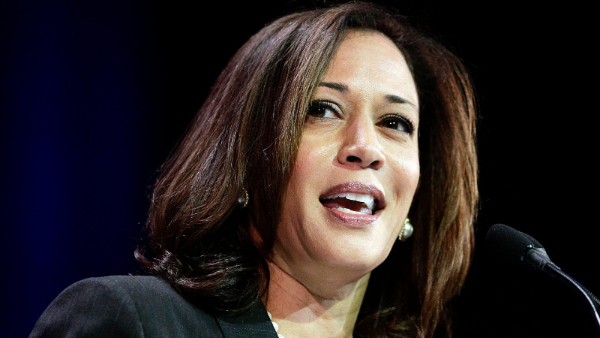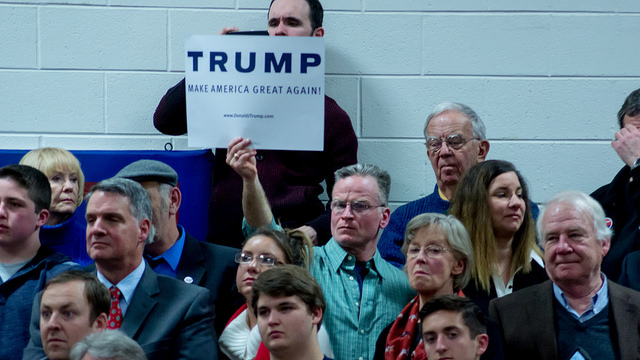Harris embodies the antihesis of Trumpism

The white racist reaction to Barack Obama's presidency had convinced me that it would be a generation before another black man or woman had a chance at the presidency. But life comes at you fast. Biden's sudden and historic withdrawal from the race and Harris' ascendancy have almost played like a reaction to the reaction.
I think there's been a pent up demand for someone who could telegraph competing vision to Trumpism. After the media and institutions like the FBI did everything in their power to destroy Hillary Clinton's presidential ambitions ("But her emails," and Comey's extra-legal arias about her supposed misdeeds), we tucked in our tails and went with the old white dude, the tried and true. Don't rock the boat. Steady as she goes.
But things aren't steady. There's a storm front (pun intended) out there and surviving it requires extraordinary measures. We sensed that, but we feared doubling down. And that was the point. Racist authoritarians work to sow sufficient fear of further retrenchment and violence that the opposition dare not mobilize.
The extraordinary political circumstances that put Harris at the top of the ticket shattered all conventional wisdom. Biden's slippage, culminating in his debate performance, became a metaphor for the lax, shuffling response to Trump's threats and criminality. The press is tongue-tied before him, judges stumble and stare slack-jawed instead of imposing the law on him, politicians rhetorically tip-toe instead of kicking hard,
Harris immediately embodied the antithesis of Trumpism, and it's heartening to see there was such a thirst for it.
Trump is the Message; America is the Medium

Photo: Mark Nozell
Americans stopped truly regarding ourselves some time ago--that is, looking at both the good and the bad of us. Instead, we took refuge in the 2D selfie--a posed self-indulgence to show the world our preferred vision of who we wish to be. This willful ignorance, this pull to indulge our narcissistic fantasies bled into many aspects of our lives. The vacation became less about the experience of place and more about the pictures we could take of ourselves at the place. We fetishized technology beyond a set of new tools, to a lifestyle that bespoke our individual shininess. Online media lives and dies by the click, so clickbait--the cheap, the vulgar, the garish--became most worthy of attention. TV news has 7 minutes of substance and 15 of talking pumpkin stories. We label puerile good vs. evil comic book banalities profound. We heed bullshit from movie stars and ignore facts from scientists. After all, celebrity is a talent, and science is most interesting when there's a billionaire attached to it.
This is Donald Trump's wheelhouse. An ignorant, racist, narcissist, he is so much of us. We revel daily in media vulgarity. How many clicks on that dick-pic? Sex tapes launch careers. We indulge and celebrate our Freudian ids (visited a typical 'comments' section lately?). Why should we take politics any more seriously than we take news, science, or entertainment? It's all just a another potential mirror, and in that mirror, there is no aspect of ourselves that is not beautiful. Through it, we can justify our racism, enshrine our paranoia, and celebrate our ignorance.
Donald Trump is so right now. He is the outgrowth of our recent obsessions and devolutions. Everything about him is a selfie. He is the most brilliant, the sexiest, the man forever with the most this with the best that. He's an amalgam of every self-help book written in the past 20 years. And many of those who look like him follow devotedly behind, seeing in him their fantasy bests selves--rich, unbound by any norm or convention, free to indulge any verbal tic or idiosyncratic whim, and turning bald-faced lies into mere statements. They envision themselves as inverse twists on the Seinfeld theme--ever-masturbatory Masters of Their Own Domains.
Donald Trump has simply extended the realm of his fantasy. He fashioned his whole life as a vulgar reverie of wealth. Then he pointed a camera at it. He sold it as hotel lifestyle; he sold it as reality show; and now he's selling it as governance. At one time or another, we've all played the game, "If I were king ...." Well, Trump invites white nativists to play that game on the new reality show called Election 2016.
You can't blame a narcissist for being a narcissist. You can, however, blame a significant percentage of the populace, and the majority of one of America's major parties, for confusing a narcissist for a statesman, for confusing their hatreds for policies, for confusing their fantasies of superiority with reality. You can then blame the rest of us for the degree to which we've all played along, for Donald Trump is the barbed hook on a long chain from which we're all perilously dangling.
Bowie, Prince, Johnny and Ella
Prince's death shocked for the same reason, and hit harder because he was my age. We don't like seeing our contemporaries die off. It only reminds us how little time we have left.
I own a lot of Bowie's music. None of Prince's. I enjoyed him in his heyday as much as anyone else, but as I got older, his music lost its grip on me, while retaining a warm, comfortable place in my nostalgic heart.
In my lifetime there have been two celebrity deaths that deeply affected me, partly due to the sheer size of my emotional reaction. The first was Johnny Carson. When I was a teenager, and often unhappy for various typical and atypical reasons, I would turn on the little black and white TV I had in my bedroom and watch him on The Tonight Show from under the covers. I watched him joke and banter, watched the guests come and go. I laughed a lot. At the time there was no significance to the ritual. It was just habit. No biggie.
Decades later, when I heard he died, I wept. I was shocked. He was a goddamned talk show host who'd retired more than a decade earlier; but I cried. Those teenaged nights with him clearly meant more to me than I had realized. He had been a friendly face when there were few, a presence I came to know to some degree, that I clearly depended on to end my day on a note far better than the ones struck until I tucked myself in and turned on that little TV. I cried when that presence left this world.
The other whose death shook me was Ella Fitzgerald. Now, I was never a big Ella fan. I was more of a Betty Carter man. In fact, I was in middle age by the time I began to appreciate the bulk of her work. However, there was one album of hers I found in high school. Called "Take Love Easy," it was duet album with the brilliant guitarist Joe Pass. Cut when she was in her late 50s, her voice had lost that fluttery, girlish quality that often annoyed me. She'd lost some of the flexibility that had fueled her (to my ears) too-often pointless embellishments. With a voice older and more world weary, she sang with a depth I hadn't heard before, made more palpable by Pass's solo guitar accompaniment. In fact, I think it was this album from the older Ella that offered me a doorway to her younger work.
When I heard she'd died, it wasn't just a person leaving. It was an epoch. When she died I played her Nelson Riddle arrangement of "But Not for Me," and I cried. It was for the world that produced something so innocently sublime. It was for the primacy of the Great American Songbook, the standard of musical grace that it embodied - so often through Ella Fitzgerald. It was for an era gone—one in which I had never even lived, but had somehow come to think I knew and had, unbeknownst to me, learned to love.
Listen here: Ella Fitzgerald with Nelson Riddle, "But Not for Me"
Simply for beauty's sake
Duke Ellington, from the magisterial album, "Such Sweet Thunder," one of the most beautiful pieces of music I know. Wistful, resigned, hopeful, tragic — all at once. Johnny Hodges saxophone is like the act of living.
Listen here: Duke Ellington Orchestra - "Star Crossed Lovers"